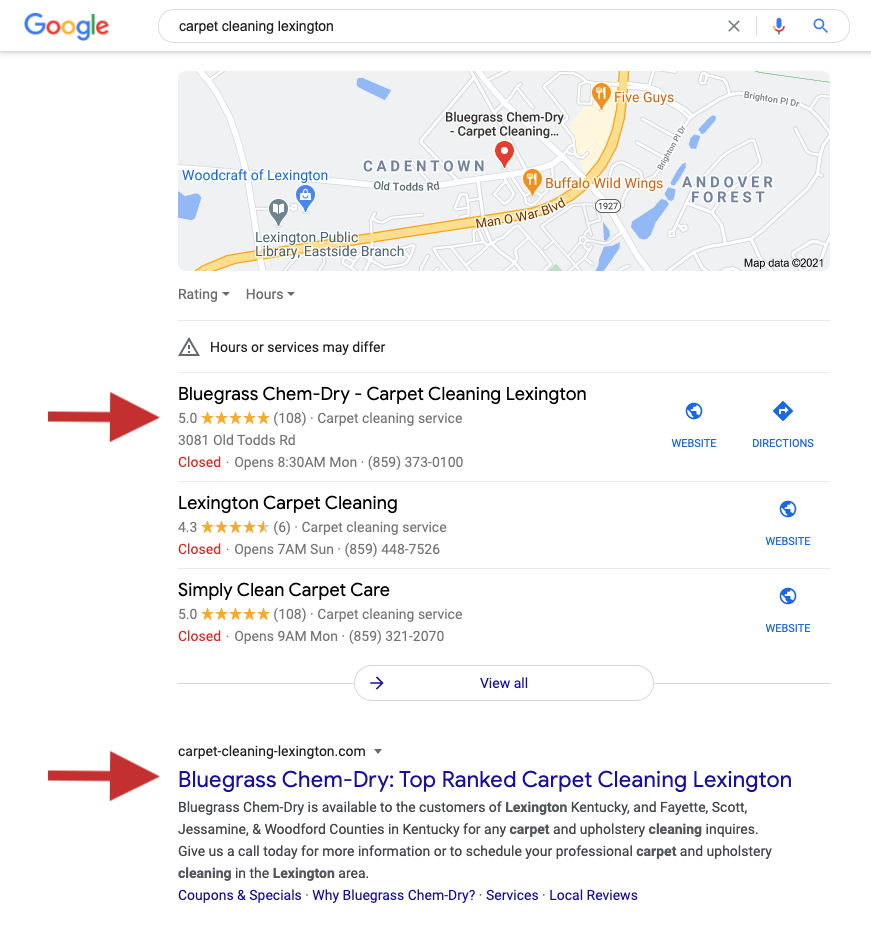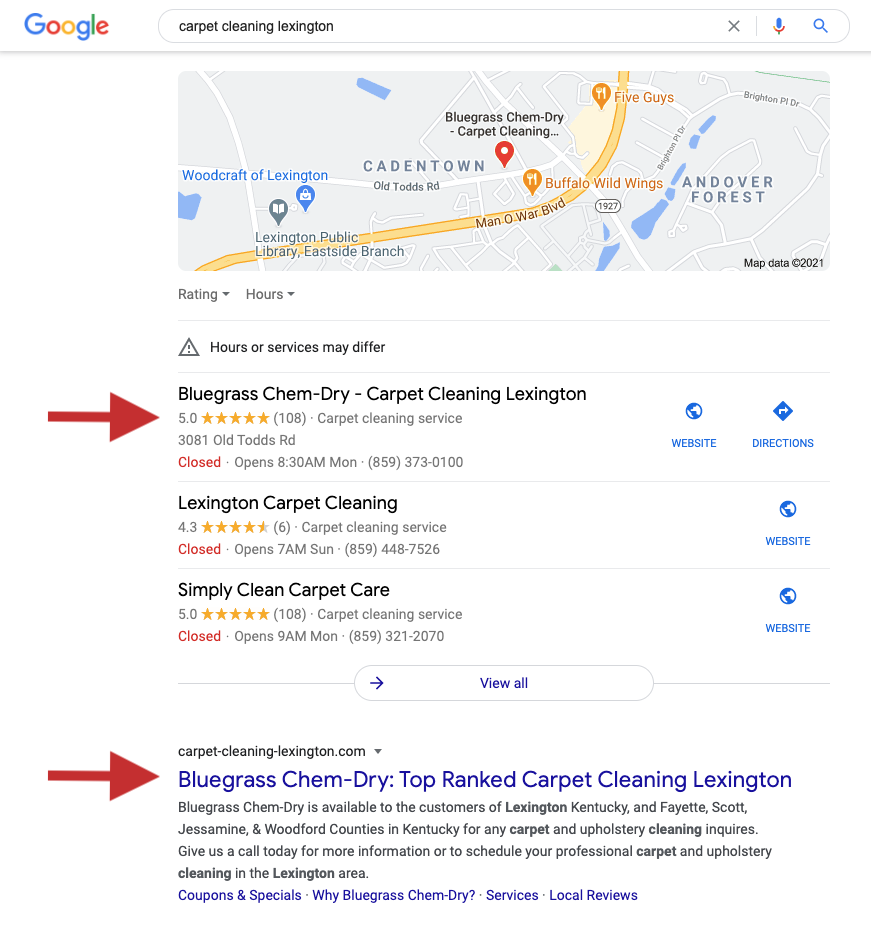Digital marketing, also called online marketing, allows counselors and therapists like you to raise their online profiles and demonstrate their authority. You can turn email, social media, and web-based advertising into a marketing channel with help from our specialists.
With nearly 40% of new patients relying on the internet to find a mental health counselor, the need therapists have for marketing is higher than ever. A bigger online presence allows those searching for a counselor to find your practice.
Being easy to find online is crucial to those dealing with mental health issues who might otherwise be hesitant to find help. Traditional advertising methods don’t offer the level of privacy and security potential clients require.
Proper digital marketing for therapists creates a welcoming process from their first search all the way to their first session with you. By having this experience searchers become loyal, long-term clients.
What Are the Different Types of Digital Marketing?
It’s true that the ways to market your business continue to multiply. Some businesses are even turning to virtual reality to do market research.
Don’t worry.
We won’t ask you to wear goggles for your client session.
While that type of marketing may work for some businesses, it’s not worth it for therapists and counselors. Your marketing team shouldn’t waste resources on types of digital marketing that bring you little return. No radio, no TV ads, and no reaching out to Instagram influencers.
Instead, you should invest in long-term strategies with big-time payoffs. Our clients reliably see great results by leveraging the following types of marketing:
- SEM (Search Engine Marketing)
- SEO (Search Engine Optimisation)
- SMM (Social Media Marketing)
- PPC (Pay-per-click)
- Mobile Advertising
- Content Marketing
- Email Marketing
Within these categories, there are two kinds of social media methods that can be used: Paid and Organic.
 No matter what type of digital marketing you choose to use, it’s important to make sure that you’re targeting the right audience. Consider who your ideal client is and what you want to charge for your services. Knowing this information, we can help you create effective campaigns that reach the right people.
No matter what type of digital marketing you choose to use, it’s important to make sure that you’re targeting the right audience. Consider who your ideal client is and what you want to charge for your services. Knowing this information, we can help you create effective campaigns that reach the right people.
What are the benefits of digital marketing?
Digital marketing has quickly become a staple in business, and for good reason! It can help business owners save time so they can focus on managing other parts of their business.
Did you know customers spend 40% more when they’ve interacted with a business online? For you as a therapist, this means more “for life” clients – providing a steady and reliable schedule. It also means that you get more of your favorite type of client.
All therapists have a favorite “type” of the client. For some, they prefer helping clients who are overstressed from work. While others prefer helping those dealing with an unstable relationship. We leverage marketing to help match you with your ideal client. It’s not just about finding clients, it’s about finding the best clients.
Your best clients are found by focusing on three metrics:
– Increased reach: Getting your business put in front of the eyes of more locals. People can’t buy what they can’t see.
– Greater engagement: If a post on Facebook or an article helps someone, the odds of them reaching out for a session skyrockets.
– Greater ROI: By providing a high long-term ROI, you not only get to earn more money but also invest in yourself and your business to grow even further.
How To Use Digital Marketing for Therapists
Remember, your primary goal is to be found by potential patients and have them recognize you as a valuable therapist. So let’s break down what using digital marketing actually looks like.
Starting with…
1. Create a website for your therapy practice
Depending on where you are in your online marketing journey, you might already have this covered. If you don’t, no problem! We’ll help get your entire website set up for you.
☐ Domain name
We start by finding an available domain name, which will almost always include the name of your business. A clear domain name increases trust in users when visiting your site and seeing it in the search results. A higher degree of trust leads to a higher conversion rate.
☐ Find hosting
Not all hosting is the same. With some host providers, your website will be plagued by slow speeds and long spouts of downtime. We get you set up on affordable, yet reliable, hosting for your site.
☐ Website design
As we covered in our article on Therapist Website Design, the visual and functional aspects of your website make a huge difference in conversions. Rather than choose a pre-made that doesn’t match your personality, we code a custom website that reflects your brand. A strong brand creates trust and authority.
☐ Maintain your website
This is a box that can never truly be checked. It’s an area that will always require a little bit of work to keep everything working smoothly. A reliable website helps signal a quality business to Google’s algorithms.
2. Search engine optimization (SEO)
Without going as in-depth as we did in our article on Therapist Web Design, we’ll just say that SEO is the process of improving a website’s position on Google’s search page. Anything outside of the first few results is almost never clicked, so ranking is very important.
While our in-house SEO checklist for an optimized site includes over 50 different checks, let’s focus on the basics:
☐ Optimize your Google My Business (GMB)
Google My Business is arguably the most important part of SEO for a local business. It’s your “online business card” that people see when looking up your business or services. An optimized GMB includes your working hours, reviews, pictures of the business (inside and outside, location, contact information, and services.
☐ Onsite SEO
We make it clear to Google what your site is about, and who it’s for. We do that through onsite SEO. Every page of your website, meta description, image tag, and blog need to share a similar message if you want Google to deem you an authority in your domain. Once it’s algorithmically clear the website is about therapy, only then will the search engine start sending people to your site.
☐ Behind-site SEO
While not an official term, this is how we refer to site speed, internal link structure, schema, and site architecture. Although visitors may not be exposed to any of this info directly, Google does weigh it when evaluating a site.
☐ Offsite SEO
Think of offsite SEO as “Internet street cred.” If a well-established and credible site like USA.gov is constantly linking to your site, Google can infer that your site is trustworthy. The higher quality of website that links to you, the more sway it has on your search engine ranking. The best way to get high quality links is not to pay someone a couple of bucks to link from their sketchy site. Rather, write high quality articles that others link to because of their content and helpfulness. That’s where our content writing services come in.
3. Content Marketing
☐ Blog articles
By publishing 1000+ word articles that are based on targeted keywords your site will be able to claim up Google’s search results. As posts about a similar topic accumulate, Google will recognize your site as having topical authority and increase its rank further. We combine this approach with localized keywords to make sure your site shows up when people in your area search for a therapist.
☐ Website Copy
In the same way that the information in a blog post gain helps a site gain authority, the copy throughout your website does too. Your site will show up when “local anxiety therapist” is searched for example, because of the researched keywords being properly spread throughout your site. The copy on your site also helps “sell” a visitor on your product.
☐ Social Media
Many businesses feel they are too small for social media. When in fact social media should always be started sooner than later. Organic social media growth takes a long time, the average Instagram business account grows its followers by just 1.69% each month. By starting early you can get the most out of the annual 22.275% follower growth.
What About the Other 4 Types of Digital Marketing?
Following through on the types of digital marketing outlined above is enough to start getting your site ranked over time. But many business owners want to see results more quickly, and that’s where the other types of marketing come into play.
PPC (Pay-per-click)
While the ROI on organic SEO is phenomenal, it does take time. Google places sites in a “sandbox” to make sure they are worth recommending before ranking them. In the meantime, you can implement PPC to start showing at the time of Google immediately. The results aren’t permanent but can help supplement traffic while the organic SEO develops.
PPC is best for therapists who have just recently opened a private practice and need an influx of clients immediately.
SEM (Search Engine Marketing)
The combination of organic SEO principles and paid ads is often referred to as SEM. The world of marketing loves abbreviations.
Mobile Advertising
Although both appear on phones, mobile advertising is distinct from PPC in a couple of different ways. The main difference is that mobile advertising is paid for regardless if users engage with the ad or not. The other difference is that mobile ads aren’t limited to just the Google search page.
It includes all the channels where a user might encounter an ad: SMS offers, banner advertisements on websites, ads on downloaded apps and games, and much more.
The goal of mobile marketing is to ensure continuous engagement by means of varied locations. Examples of a few locations where a client might want ads are the Instagram Story Ads that pop up in between your connection’s stories, ads on Facebook, Carousel Ads, Snapchat Ads, YouTube ads, the ads that play in-between video games, or the ads that show while browsing mobile websites.
Now that you understand the difference between PPC and Mobile Advertising, you should understand why counselors don’t typically choose mobile ads. They aren’t the best at finding people who need specific services like help with mental health.
Email Marketing
The return on investment for a well-thought-out email marketing strategy is enormous. Some studies report an average return of $42 for every $1 spent on email marketing.
Emails are typically collected by offering website visitors a free informational PDF in exchange for their email.
What you as the business owner get in return is a list of people who are interested in your services and want to know more. You can think of it as the list of people most likely to purchase something from you.
If later if your career you want to sell a course or a book, you’ll already have a list of people that are likely to buy.
We suggest keeping email rates low enough not to be bothersome, but frequent enough so they remember your business.
How To Create a Digital Marketing Strategy
Developing a therapist’s digital marketing strategy is a difficult skill to master but highly rewarding for the business when done right.
The most important thing for any therapist’s website is that it must create a sense of security and offer hope to those visitors who need it most.
The most effective way to do this is to make sure that those matching your ideal client profile are the ones driven to your site.
While you could use keyword research combined with the above tactics to plan and execute a strategy on your own, you’ll save stress and money by leaving it to the experts.
Give us a call for a free consultation and to get started on growing your business today. The sooner you start, the larger your practice can grow.




